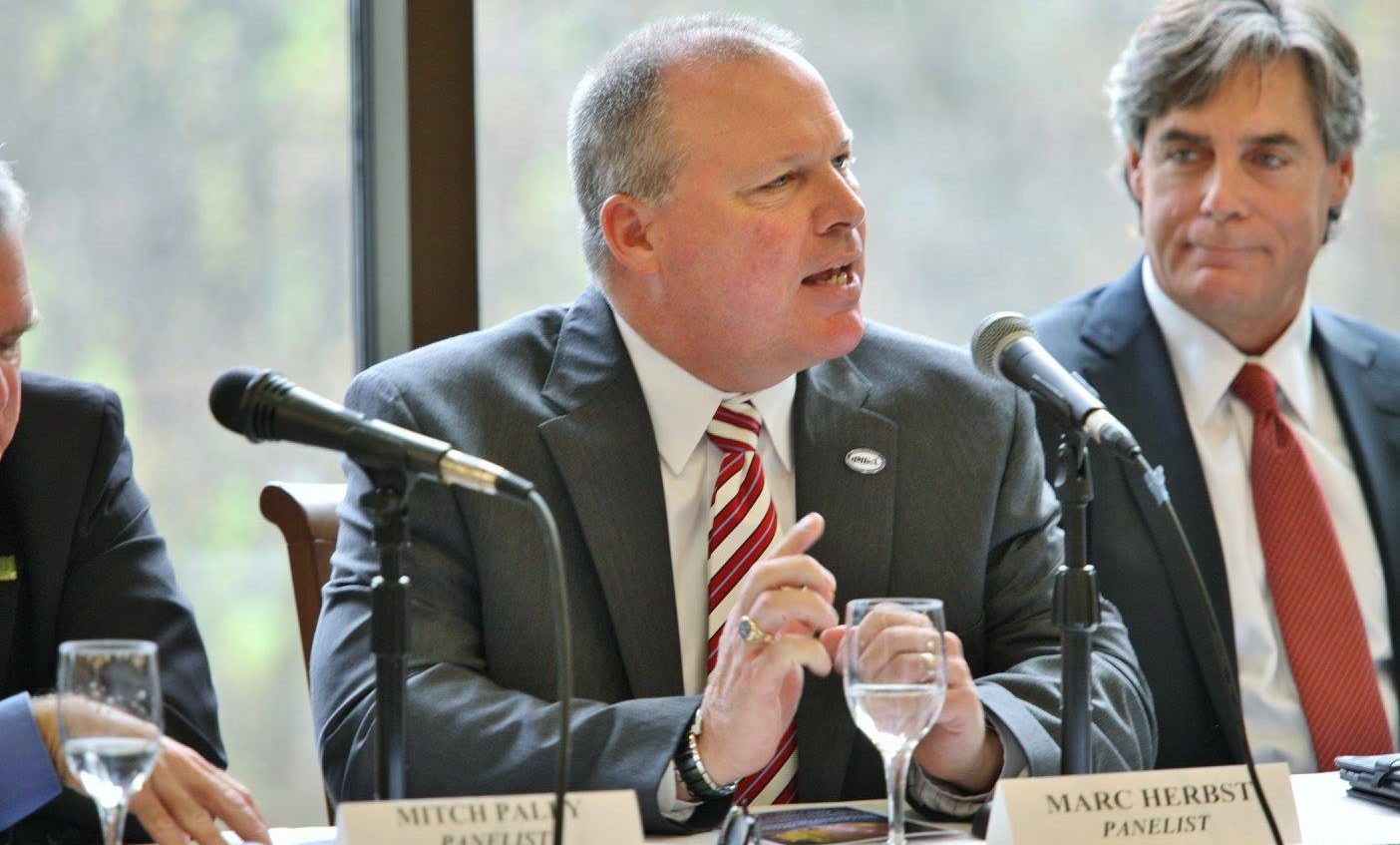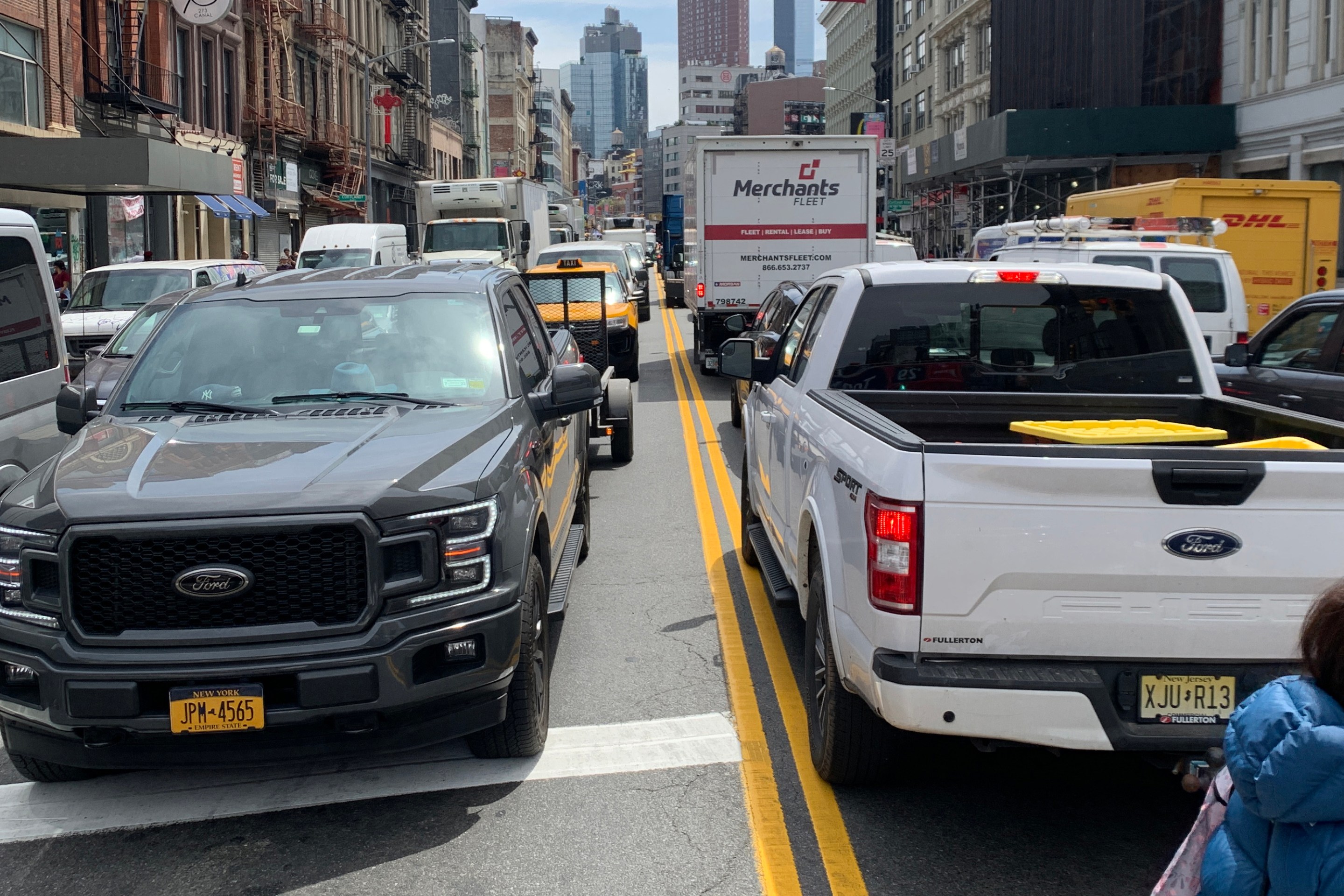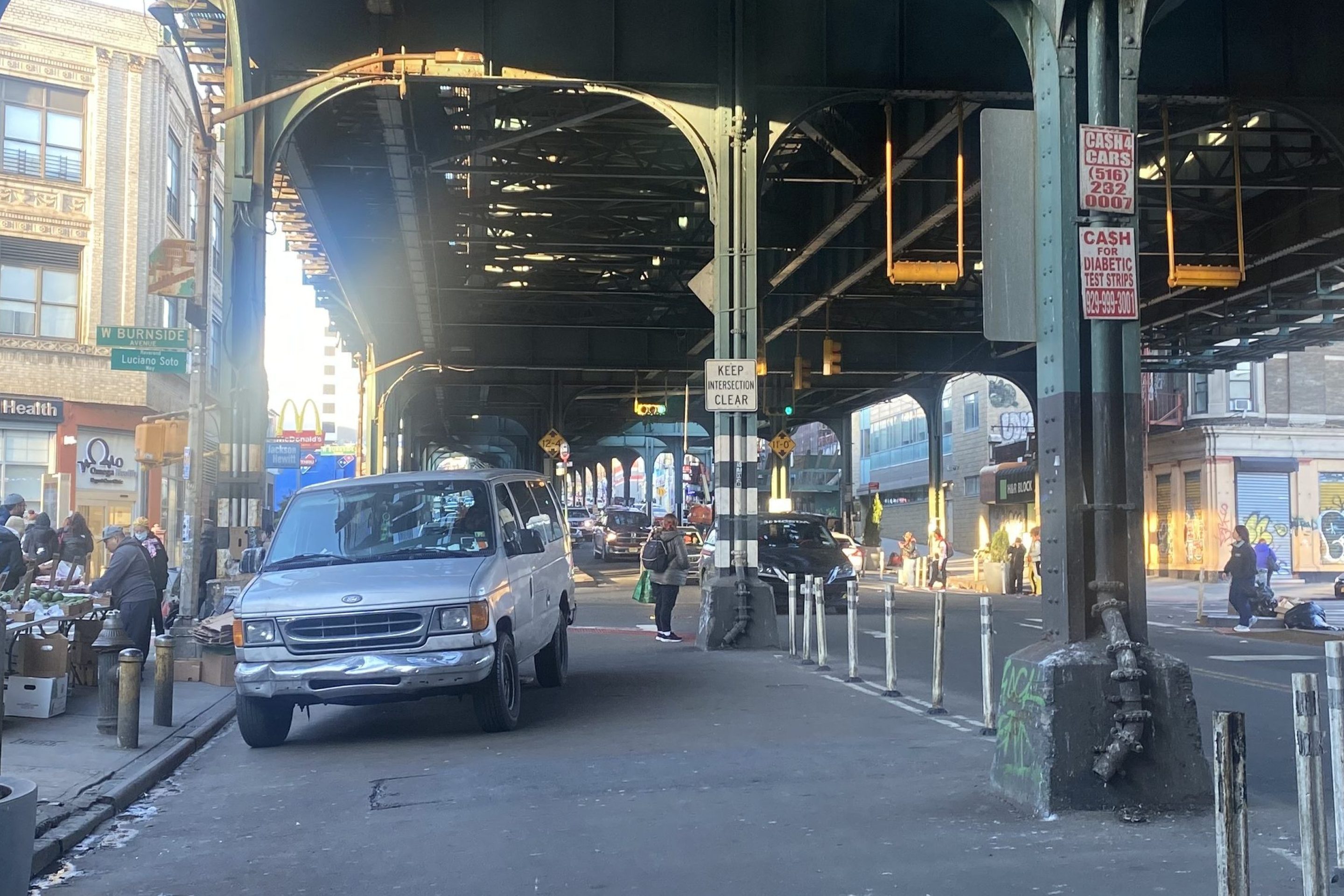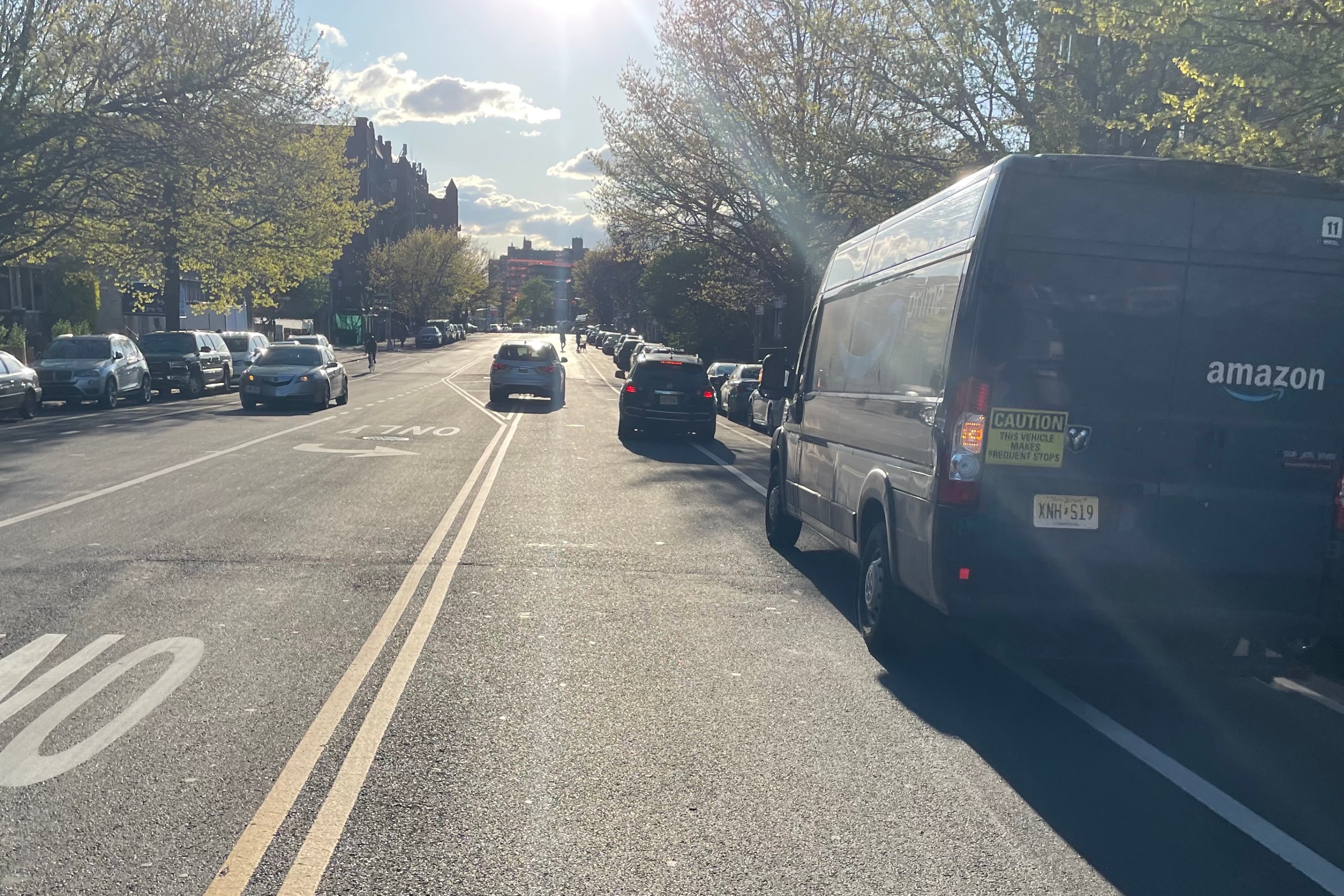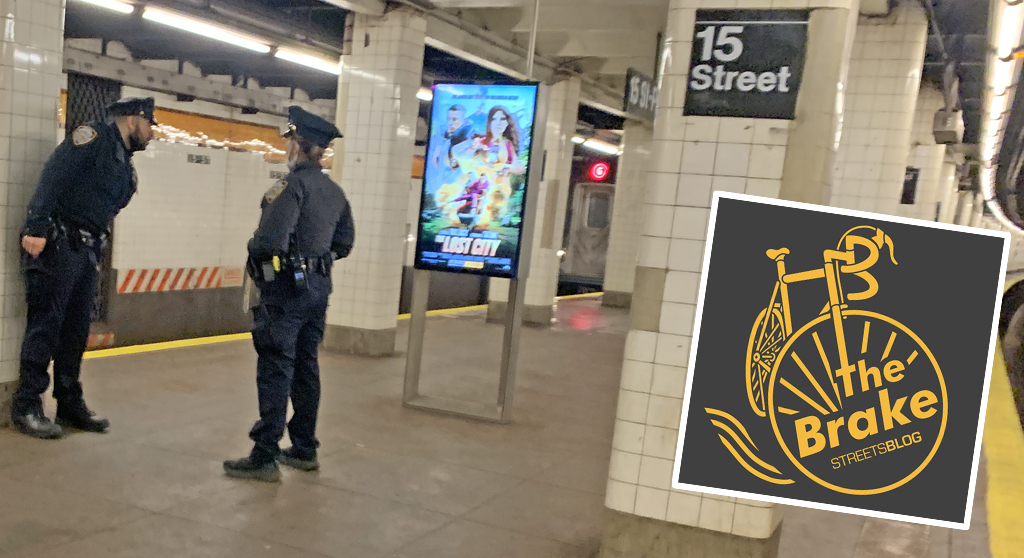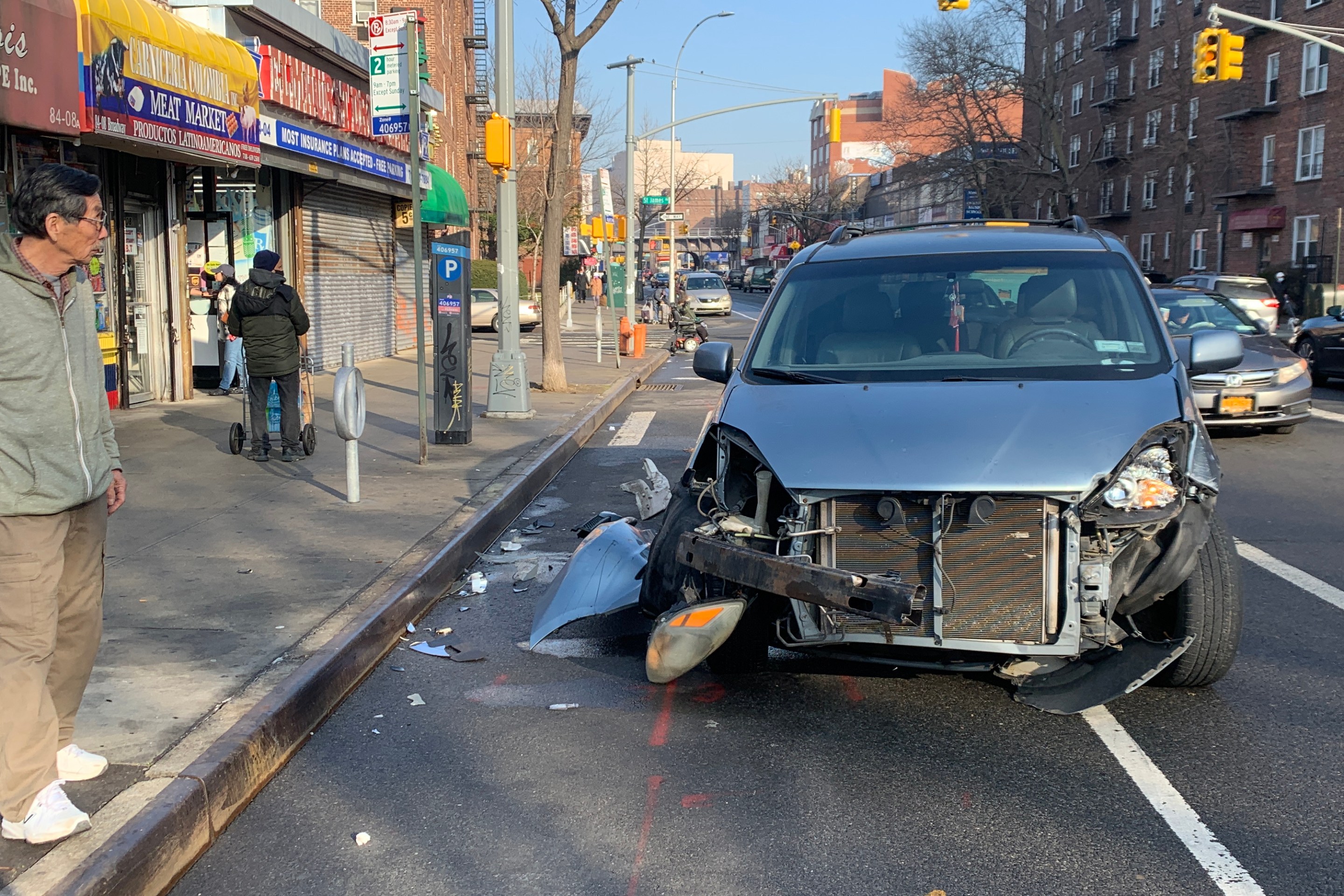Suffolk County's Republican executive's pick for the MTA Board strongly backed congestion pricing during his nomination hearing in Albany on Tuesday afternoon, despite the perception of an anti-toll revolt by the Long Island suburbs.
Before the Senate Corporations, Authorities and Commissions Committee, Marc Herbst — County Executive Ed Romaine's pick to represent the easternmost county — didn't take the bait when congestion pricing opponent Sen. James Skoufis, a Democrat from the Hudson Valley, suggested the toll was unfair because there already tolls on the Tappan Zee and George Washington Bridge.
"This was something studied," said Herbst, the executive director of the Long Island Contractors’ Association. "That's been going through the environmental assessment process. It's been thoroughly vetted. You had a special committee that was put together to come up with a structure and looking what the rates would be, what the exemptions would be."
Herbst also used his answer to lay out just how much due diligence has been done on the toll, up to and including getting 25,000 public comments in a single round of public testimony.
"The public was invited to have input, I understand there were over 25,000 comments. [The Traffic Mobility Review Board] came to a conclusion and made a recommendation," he said. "So now, if you're asking me to just take that and say that was meaningless and vote a different way ... I have to look at the overall facts. Has due diligence taken place? And I have to make a decision."
Herbst also told Skoufis that if he were a Board member when the final MTA Board vote on congestion pricing takes place, he would vote for the proposed $15 peak toll to enter Manhattan below 60th Street without additional exemptions, because the alternative is blowing a hole in the 2020-2024 capital plan.
"If this is not approved, who is going to fill that hole? Is the legislature going to fill in that hole to make up the difference in the capital program? Because if there's not an alternative to continue the process of the capital program funding through the next few years, then voting no would be irresponsible to the overall system," he said.
Advocates said afterwards that Herbst demonstrated that he understands what it means to be a responsible fiscal steward on the MTA Board.
"We've seen for a few years now that congestion pricing is the only reliable funding source for the MTA that's financially responsible right now," said Reinvent Albany Senior Policy Adviser Rachael Fauss. "The MTA can't afford to borrow $15 billion more from its own resources. It would be irresponsible because it would put tremendous pressure on them to increase fares, which they have already done. The best way to fund transit is to get revenue that isn't on the backs of riders."
Herbst's support for congestion pricing is not exactly a secret, as Newsday reported in January that he was in favor of the traffic toll, specifically because of the money it will bring to the capital plan. But when Herbst also told the paper he wanted to make sure the MTA got congestion pricing "right," he wasn't just trying to hide behind vague generalities.
"I’m concerned about it being done fairly without all kinds of exceptions," he told the island's paper of record, laying down the same marker he did when Skoufis asked him if he supported exemptions for Hudson Valley drivers.
And where Skoufis has focused his time on opposing the toll, Herbst also told Newsday he wanted to make sure that the Long Island Rail Road got its 10 percent cut under the law. That, Fauss said, is what legislators should be focusing on at this point with congestion pricing just months away from a scheduled start.
"Ten percent of the revenue is going to Metro-North and 10 percent to the Long Island Rail Road. It's incumbent on legislators to make sure they get some of that funding for their constituents, to make sure the MTA has projects lined up that will benefit them. The MTA has another capital plan coming up, that would be a good place to direct this energy," she said.
